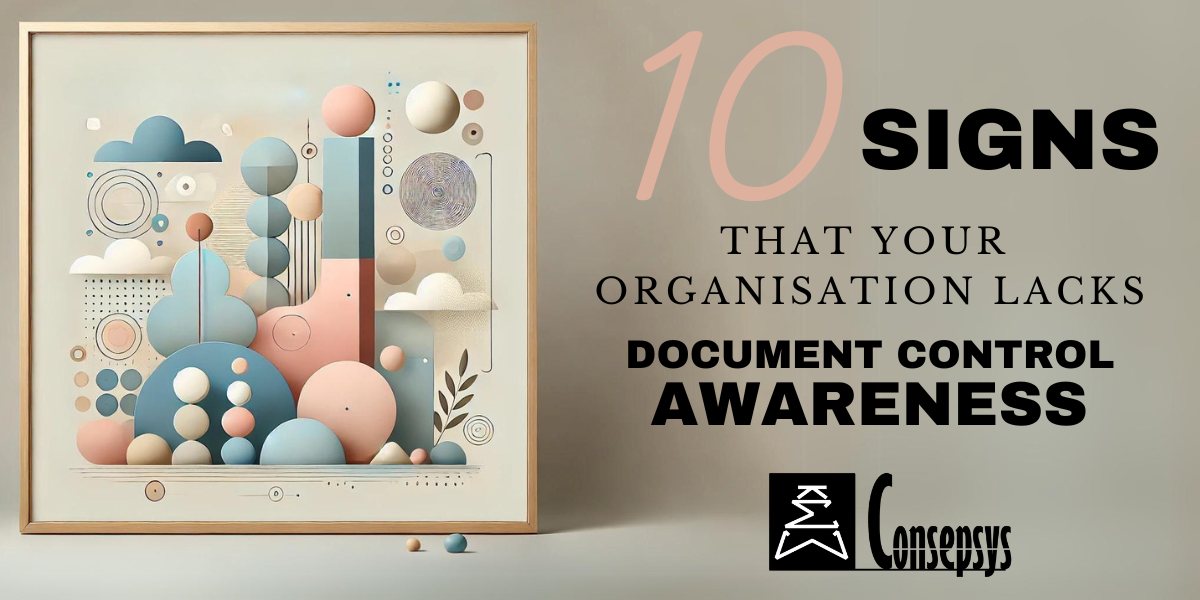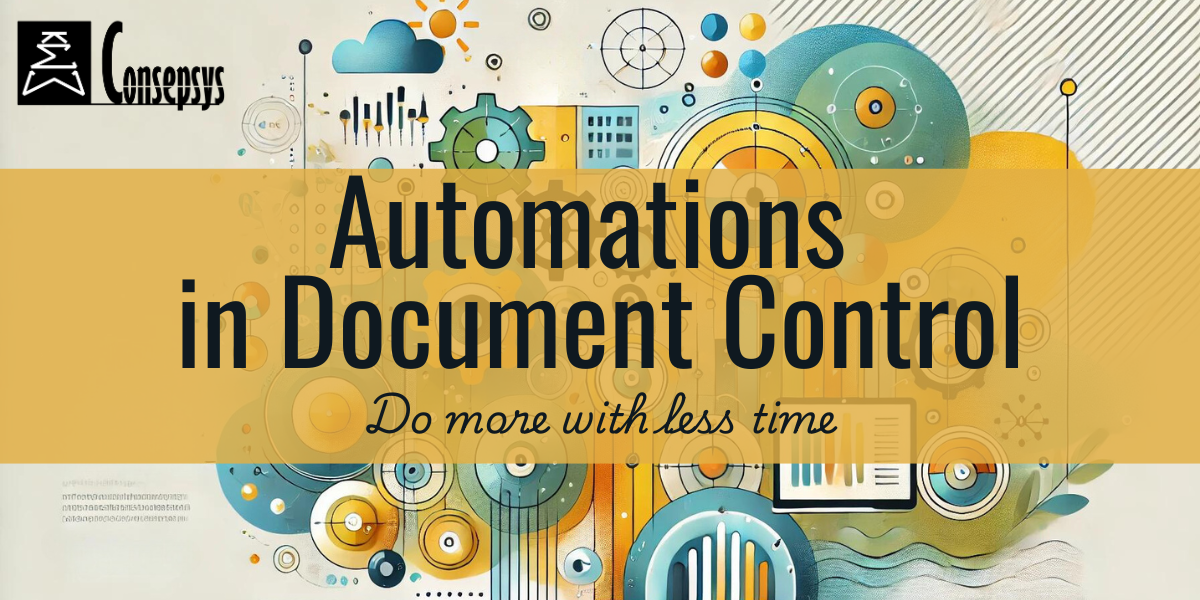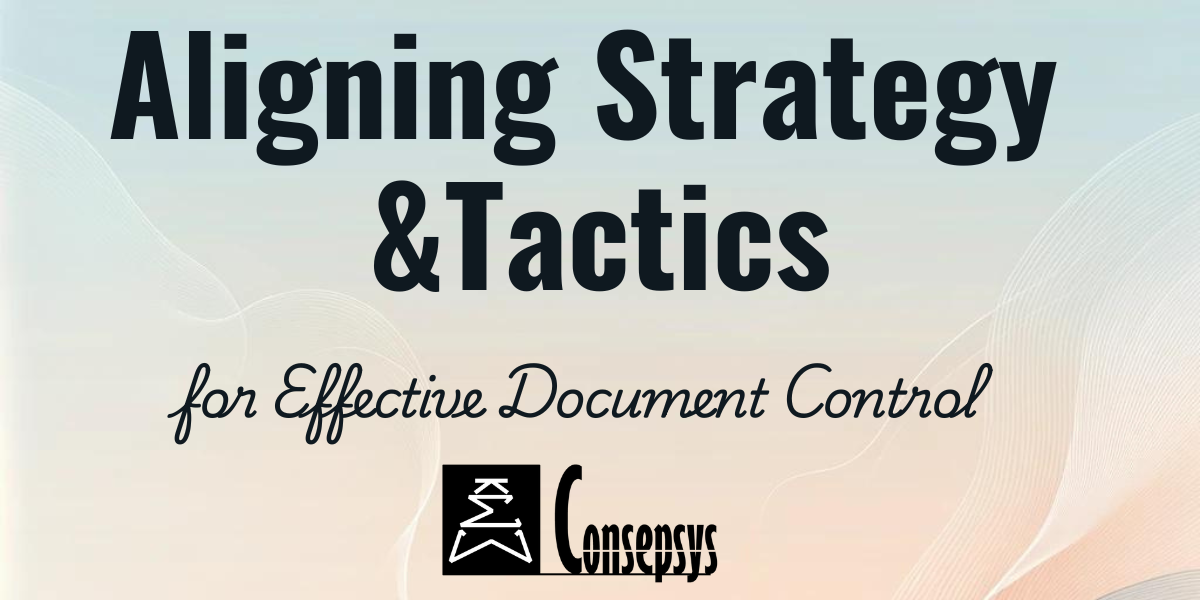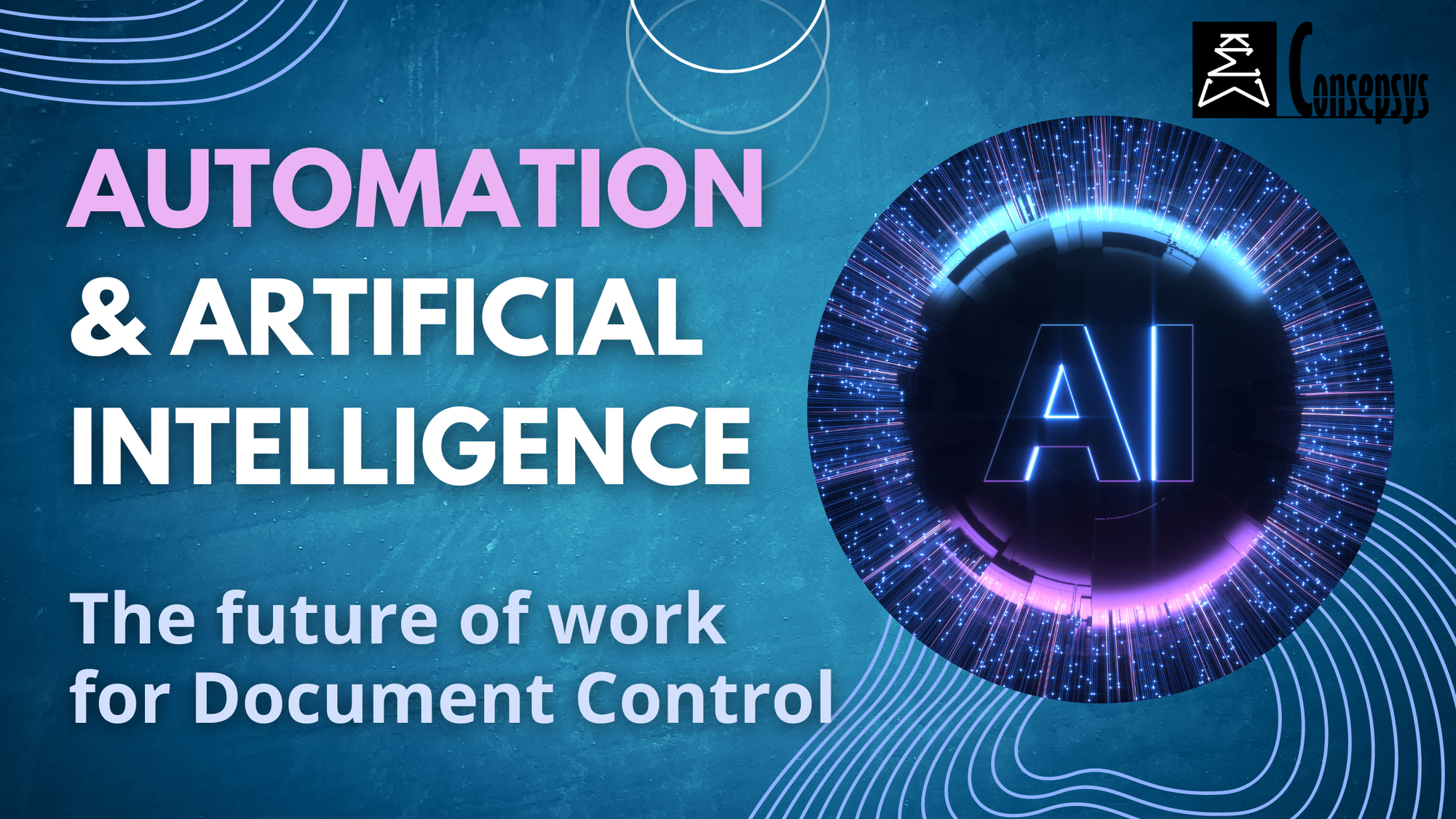Best Practices · 26. September 2024
Here are 10 key signs that an organisation is not paying enough attention to Document Control (DC):
1. Exclusion from key meetings
A major red flag is when Document Controllers are not invited to important meetings (for example, project and progress meetings, kick-off meetings, etc). This suggests that management does not fully understand the value of Document Control or how integral it is to the organisation's success, leading to serious mistakes down the line.
Best Practices · 26. September 2024
Document Control teams are often under-resourced, grappling with a high volume of tasks despite limited personnel and budgets.
This constraint forces them to be innovative in their approach to managing documents and maintaining compliance. However, sacrificing quality, compliance or traceability should never be an option when looking at reducing manhours spent on Document Control tasks.
One of the options we have is leveraging automation tools. By finding clever ways to optimise their pr
Best Practices · 26. September 2024
In any business, entity or project, both strategy and tactics play crucial roles in achieving success. Though often used interchangeably, the two terms represent distinct concepts, and understanding their differences can greatly enhance your approach to problem-solving.
Best Practices · 24. September 2024
In today’s digital world, documents are the backbone of operations in nearly every organisation.
Documents hold vital information that can impact decision-making, compliance, and day-to-day operations
So it’s fair to ask your employer if they would pay for your training, education or certification, as it will also bring value to the organisation.
But, for many, this conversation might feel uncomfortable.
That’s why we have listed 10 tips to help you approach this conversation confidently.
Career · 29. May 2023
What are the benefits and the return on investment of getting trained and certified by Consepsys?
Career · 29. May 2023
Getting trained and certified benefits both you and your company; it’s a win-win situation: You gain knowledge and recognition while becoming a more skilled and productive employee.
So it’s fair to ask your employer if they would pay for your training, education or certification, as it will also bring value to the organisation.
But, for many, this conversation might feel uncomfortable.
That’s why we have listed 10 tips to help you approach this conversation confidently.
Best Practices · 10. May 2023
A constant struggle that Document Control professionals talk about a lot is the difficulty in getting people (e.g. authors or external suppliers) to submit their documents on time and well in advance, so that Document Controllers can have the time to check the documents, to send them back for modifications if required, and to get the document ready to be transmitted or distributed by the day on which it is actually due.
Career · 12. April 2023
The majority of professionals suffers from the fact that their interfaces do not understand how much work goes behind tasks, and the processes that professionals must go through.
A typical example is that many users expect their documents to be distributed within five minutes of having sent it to the Document Controller. Users who behave like that exhibit a condition that we will call “Process Blindness” for the purpose of this article.
Career · 12. April 2023
In the workplace, it can be difficult to deal with the various personalities that we face on a day-to-day basis. Naturally, each of us finds affinities with certain people, aversion towards some people and neutrality towards the rest. Most people get along just fine with most other people in the work environment. Most people, but not all people. It can be very interesting to actually understand our own personality, that of other people, and the reasons why there is an affinity or a dislike.
Technologies · 11. April 2023
Artificial intelligence (AI) has been everywhere in the news since the recent release of ChatGPT on the 30th of November 2022. We have seen countless examples of people testing the tool on a wide variety of topics, and with answers from the AI that were quite astonishing sometimes. Which takes us to the question: what are the possible consequences for us in the workplace? And how will it change the way we work, and the way Document Control works in the near future?






![How to ask your employer to fund your training [Templates and Tips included]](https://image.jimcdn.com/app/cms/image/transf/none/path/s44e5f99a41a53b89/image/i296cc2b05d30fba8/version/1685353842/how-to-ask-your-employer-to-fund-your-training-templates-and-tips-included.png)



